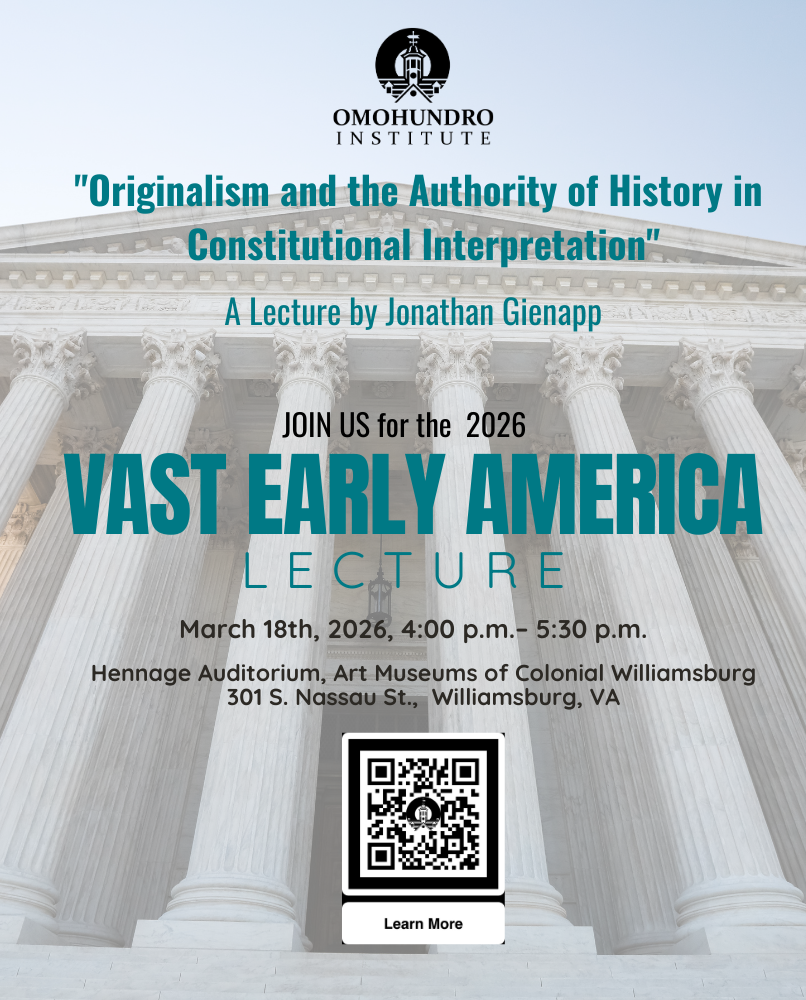By Anna Mae Duane
July 16, 2018
OI Books: The Emergence of a Field
Today’s post is part of our series marking the 75th anniversary of the Omohundro Institute by exploring the OI books that have had an impact on a scholar’s life.
I had just finished an exhilarating but exhausting first year at the University of Connecticut and was petrified about turning my dissertation into a book. It had been an incredible stroke of luck to land at UConn, and it seemed particularly miraculous in light of how my dissertation project had perplexed many of the hiring committees I had met the previous year. My work focused on how the visceral emotional response to child-victims worked as a political force in colonial and early republican America. In 2003, few people in early American studies saw children as something that could or should be analyzed. How, I was asked again and again, could the early American child be a historically legible factor in political theory and action? Children were too innocent, too incompetent, and (perhaps most important for someone who needed to land a peer-reviewed book contract within the next three years) too inaccessible to write about with any real rigor. Read More
#VastEarlyAmericabooks
11 min read


![JLM-JMJ_day_3.REV_[1]](https://oieahc.wm.edu/wp-content/uploads/JLM-JMJ_day_3.REV_1.png)
![JLM-JMJ_day_1[1]](https://oieahc.wm.edu/wp-content/uploads/JLM-JMJ_day_11.png)
![581px-John_Marshall_by_Henry_Inman_1832[1]](https://oieahc.wm.edu/wp-content/uploads/581px-John_Marshall_by_Henry_Inman_18321.jpg)
![Michael-Blaakman-2020-180×235-1[1]](https://oieahc.wm.edu/wp-content/uploads/Michael-Blaakman-2020-180x235-11.jpg)